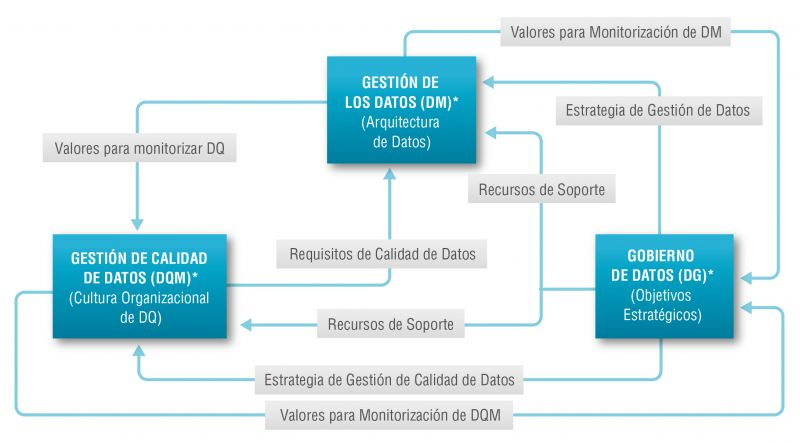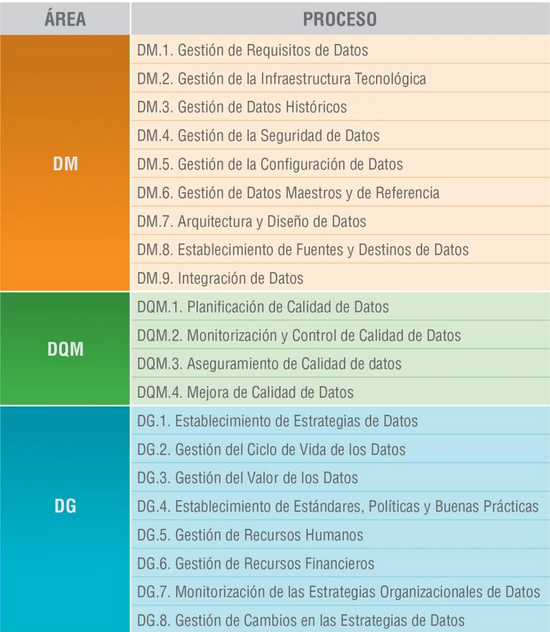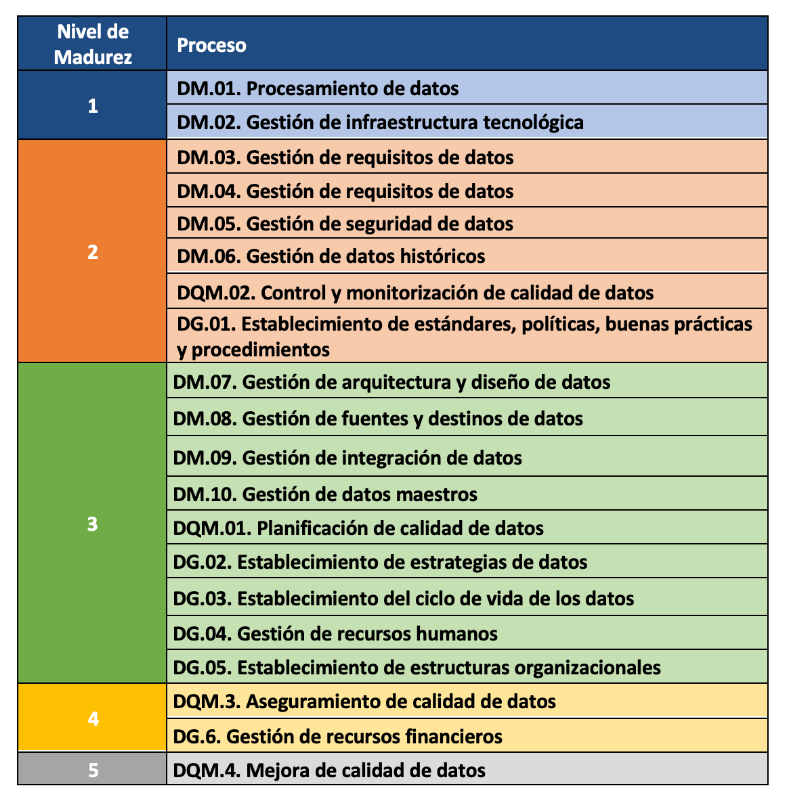
There is such a close relationship between data management, data quality management and data governance that the terms are often used interchangeably or confused. However, there are important nuances.
The overall objective of data management is to ensure that data meets the business requirements that will support the organisation's processes, such as collecting, storing, protecting, analysing and documenting data, in order to implement the objectives of the data governance strategy. It is such a broad set of tasks that there are several categories of standards to certify each of the different processes: ISO/IEC 27000 for information security and privacy, ISO/IEC 20000 for IT service management, ISO/IEC 19944 for interoperability, architecture or service level agreements in the cloud, or ISO/IEC 8000-100 for data exchange and master data management.
Data quality management refers to the techniques and processes used to ensure that data is fit for its intended use. This requires a Data Quality Plan that must be in line with the organisation's culture and business strategy and includes aspects such as data validation, verification and cleansing, among others. In this regard, there is also a set of technical standards for achieving data quality] including data quality management for transaction data, product data and enterprise master data (ISO 8000) and data quality measurement tasks (ISO 25024:2015).
Data governance, according to Deloitte's definition, consists of an organisation's set of rules, policies and processes to ensure that the organisation's data is correct, reliable, secure and useful. In other words, it is the strategic, high-level planning and control to create business value from data. In this case, open data governance has its own specificities due to the number of stakeholders involved and the collaborative nature of open data itself.

The Alarcos Model
In this context, the Alarcos Model for Data Improvement (MAMD), currently in its version 3, aims to collect the necessary processes to achieve the quality of the three dimensions mentioned above: data management, data quality management and data governance. This model has been developed by a group of experts coordinated by the Alarcos research group of the University of Castilla-La Mancha in collaboration with the specialised companies DQTeam and AQCLab.
The MAMD Model is aligned with existing best practices and standards such as Data Management Community (DAMA), Data management maturity (DMM) or the ISO 8000 family of standards, each of which addresses different aspects related to data quality and master data management from different perspectives. In addition, the Alarcos model is based on the family of standards to define the maturity model so it is possible to achieve AENOR certification for ISO 8000-MAMD data governance, management and quality.
The MAMD model consists of 21 processes, 9 processes correspond to data management (DM), data quality management (DQM) includes 4 more processes and data governance (DG), which adds another 8 processes.

The progressive incorporation of the 21 processes allows the definition of 5 maturity levels that contribute to the organisation improving its data management, data quality and data governance. Starting with level 1 (Performed) where the organisation can demonstrate that it uses good practices in the use of data and has the necessary technological support, but does not pay attention to data governance and data quality, up to level 5 (Innovative) where the organisation is able to achieve its objectives and is continuously improving.

The model can be certified with an audit equivalent to that of other AENOR standards, so there is the possibility of including it in the cycle of continuous improvement and internal control of regulatory compliance of organisations that already have other certificates.
Practical exercises
The Library of the University of Castilla-La Mancha (UCLM), which supports more than 30,000 students and 3,000 professionals including teachers and administrative and service staff, is one of the first organisations to pass the certification audit and therefore obtain level 2 maturity in ISO/IEC 33000 - ISO 8000 (MAMD).
The strengths identified in this certification process were the commitment of the management team and the level of coordination with other universities. As with any audit, improvements were proposed such as the need to document periodic data security reviews which helped to feed into the improvement cycle.
The fact that organisations of all types place an increasing value on their data assets means that technical certification models and standards have a key role to play in ensuring the quality, security, privacy, management or proper governance of these data assets. In addition to existing standards, a major effort continues to be made to develop new standards covering aspects that have not been considered central until now due to the reduced importance of data in the value chains of organisations. However, it is still necessary to continue with the formalisation of models that, like the Alarcos Data Improvement Model, allow the evaluation and improvement process of the organisation in the treatment of its data assets to be addressed holistically, and not only from its different dimensions.
Content prepared by Jose Luis Marín, Senior Consultant in Data, Strategy, Innovation & Digitalization.
The contents and points of view reflected in this publication are the sole responsibility of the author.